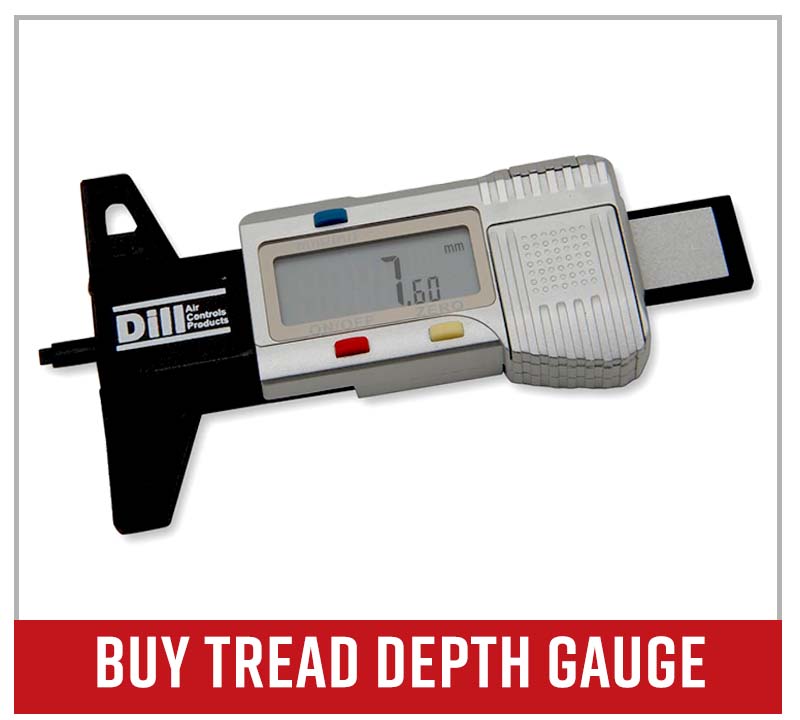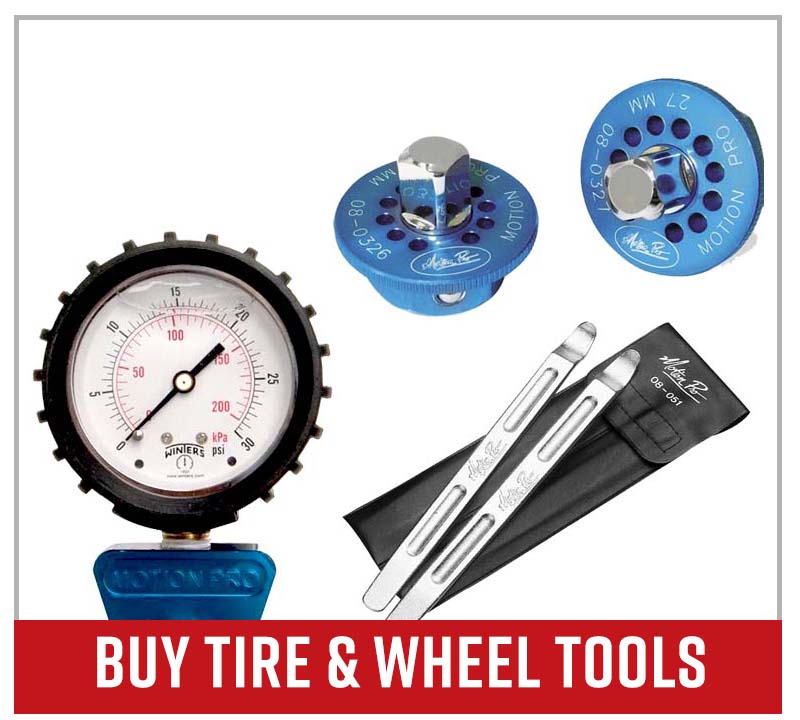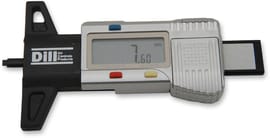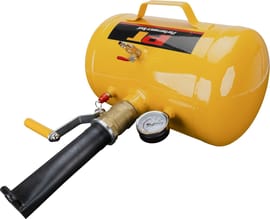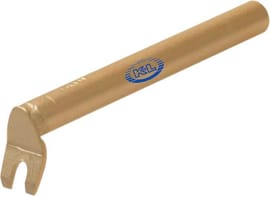How to Check Motorcycle Tire Wear
Your motorcycle’s tires connect the bike’s power and handling to the road. When the tires wear out, you face both performance and safety issues.
Nobody wants to change out tires too early due to the extra expense, but doing it too late poses risks. Knowing how to inspect the tires on a motorcycle can help you decide whether it’s the right time to change them out. Here’s how to check your motorcycle’s tires for wear.
Finding the Wear Indicators on a Motorcycle Tire
Today’s motorcycle tires are better engineered to provide indicators about when they’re worn.
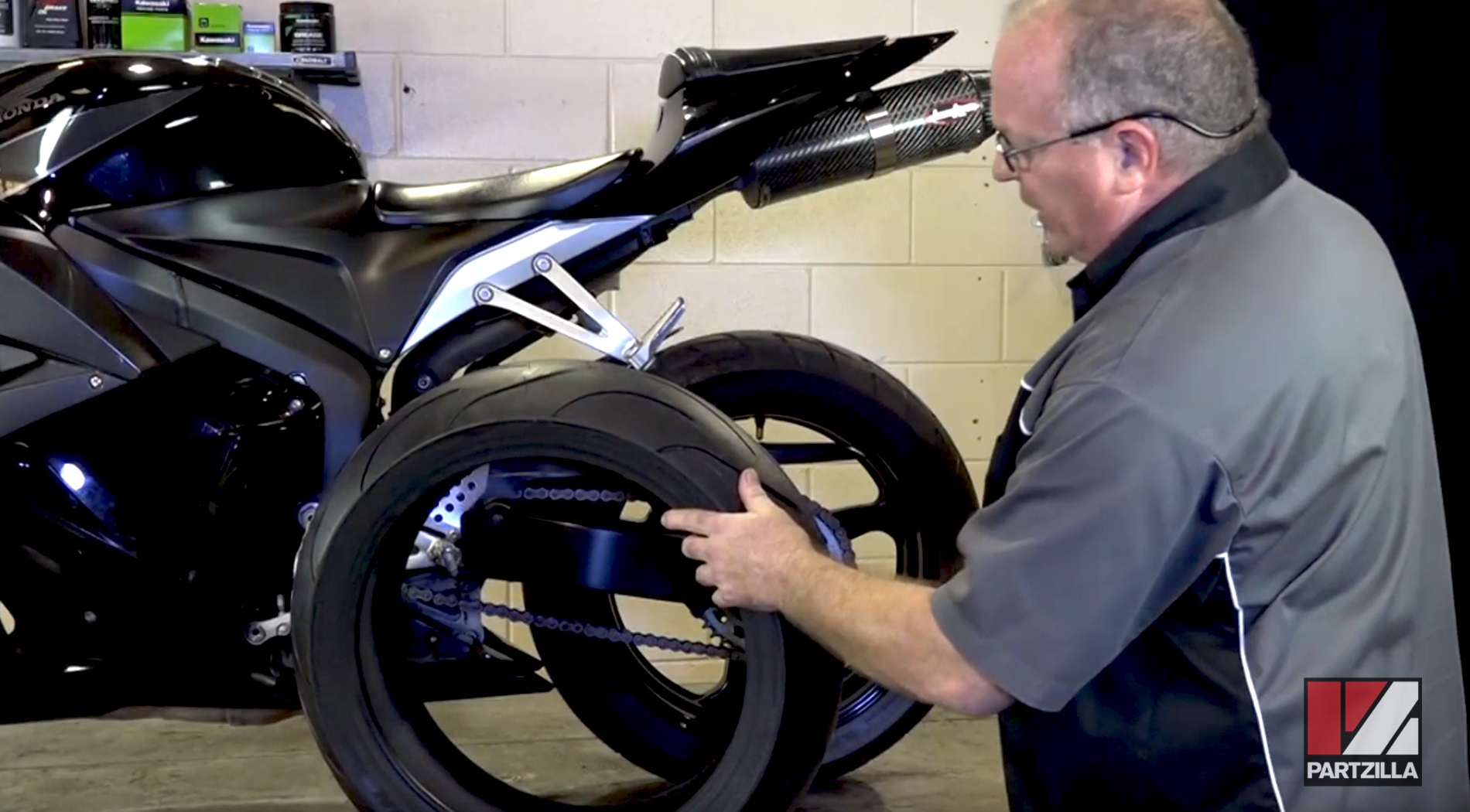
A new tire usually starts with 5-6 millimeters of tread depth that shallows the grooves as the tire wears down. There are small bumps in the grooves of the tire tread that serve as wear indicators. When the tread surface is worn down to those bumps, there’s about 1mm of tread left, which means it’s time for a change.
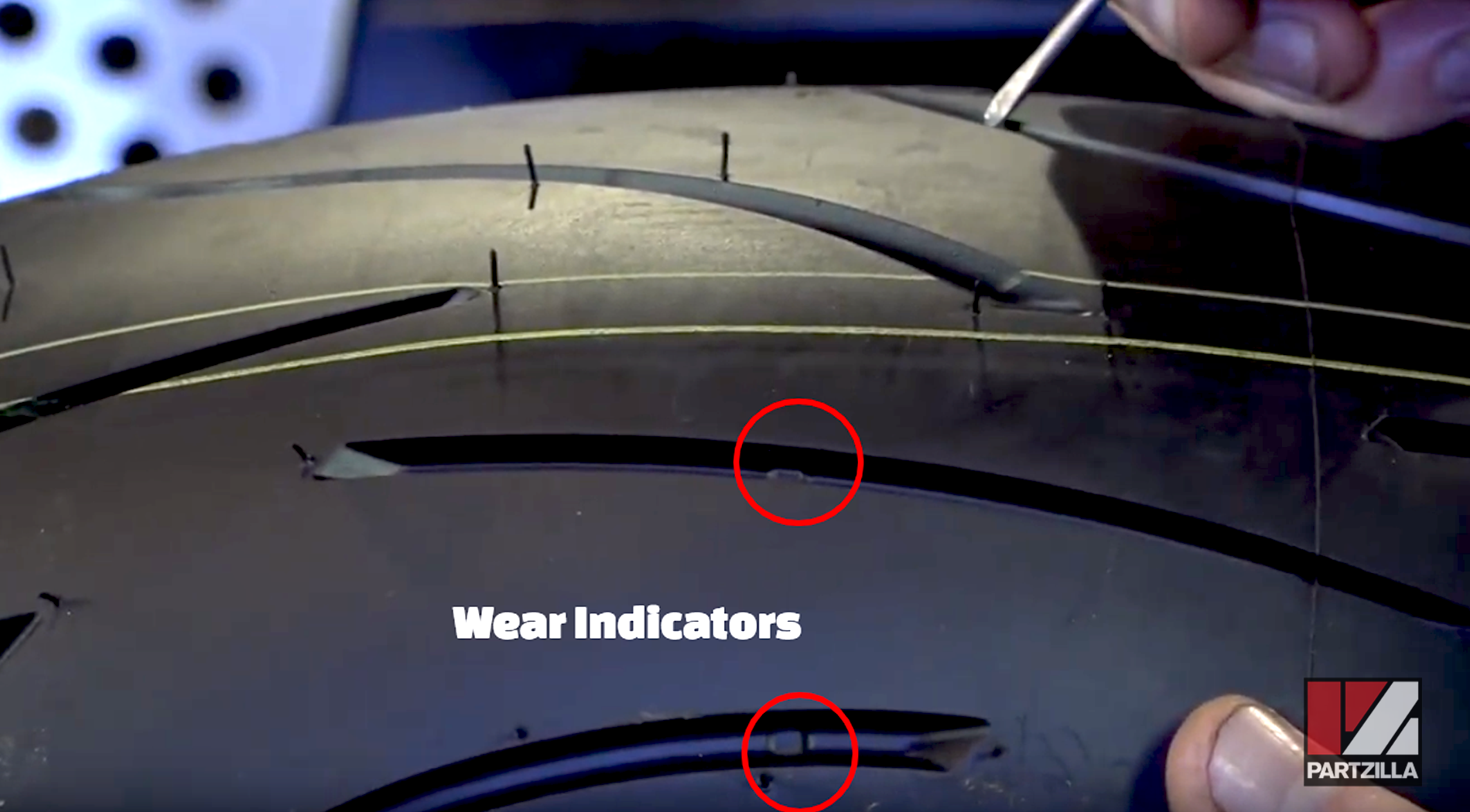
When to Change a Motorcycle Tire
You should change a tire before it reaches 1mm of depth, because once the tire is worn down to that level, the grooves are less effective at channeling water out from between the contact patch of the tire and the road.
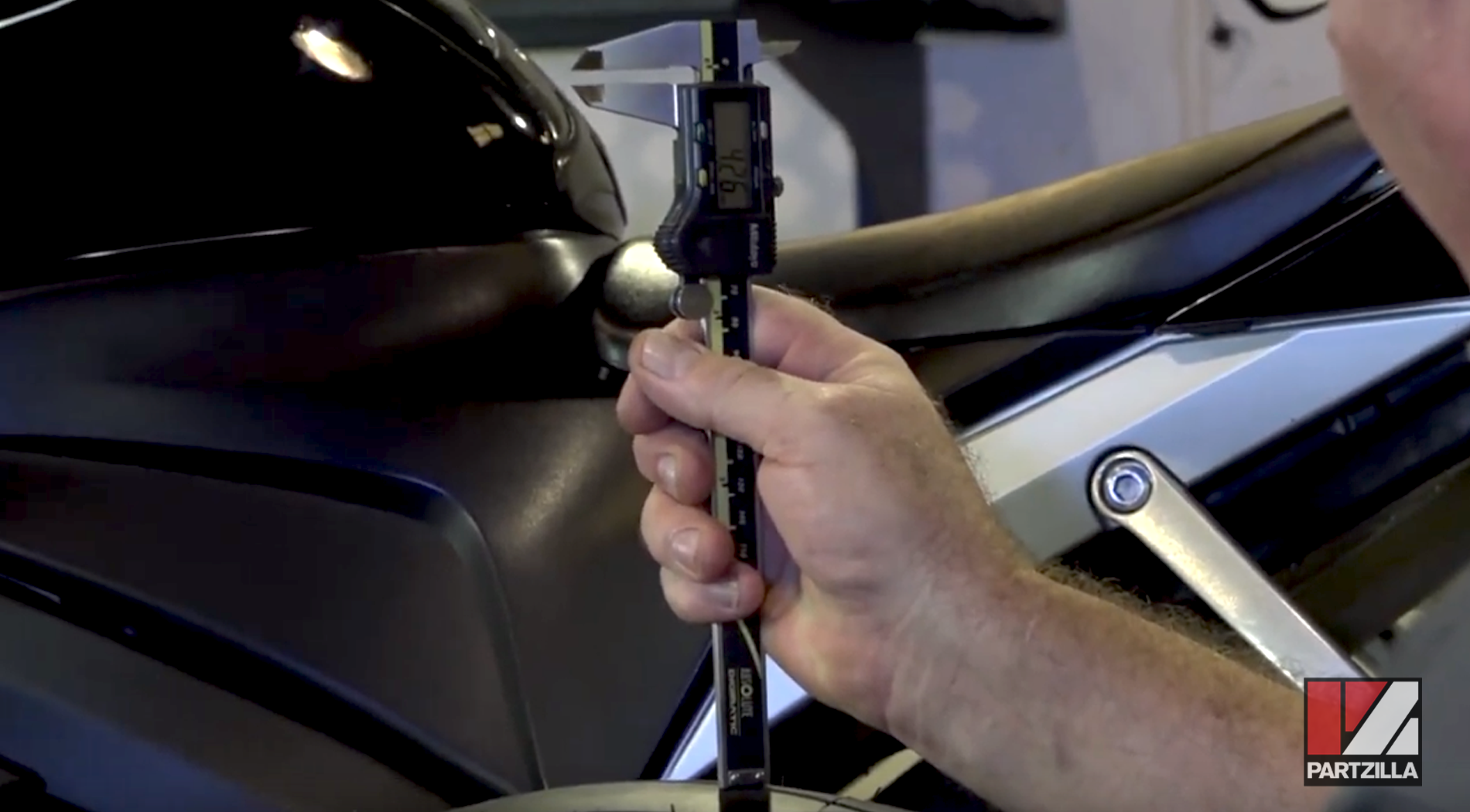
Two millimeters of tread depth is about as low as you should let it go. You don’t need a fancy measuring instrument or other tire tools to detect 2 millimeters of tread depth. Use a penny if you don’t have a measuring tool handy.
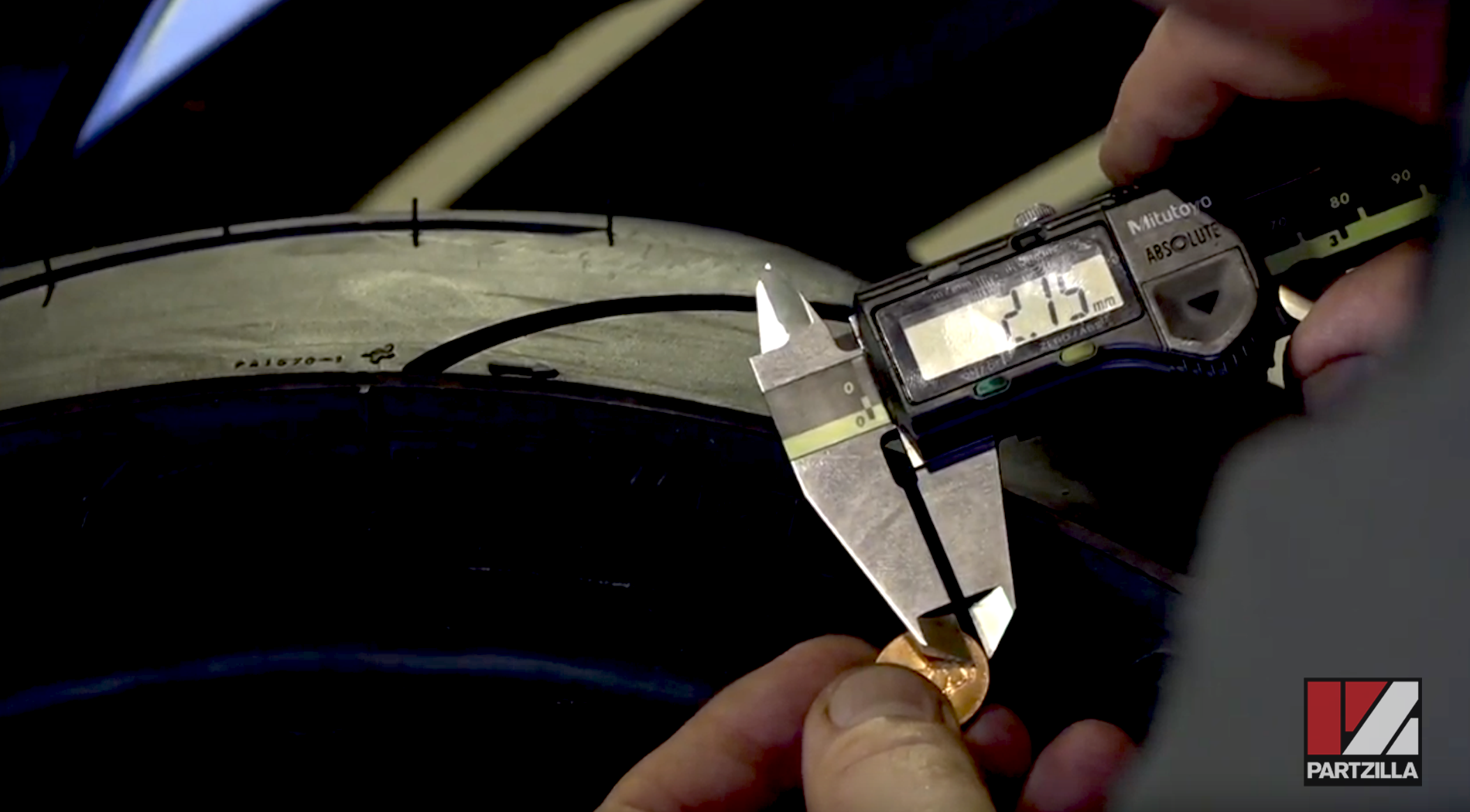
The distance between the top of President Lincoln’s hair and the edge of the penny is about 2mms. Place your penny in the tire groove with Honest Abe headfirst. If you can see the top of his hairline sighting along the tire’s surface, then Lincoln says it’s time to make a change.
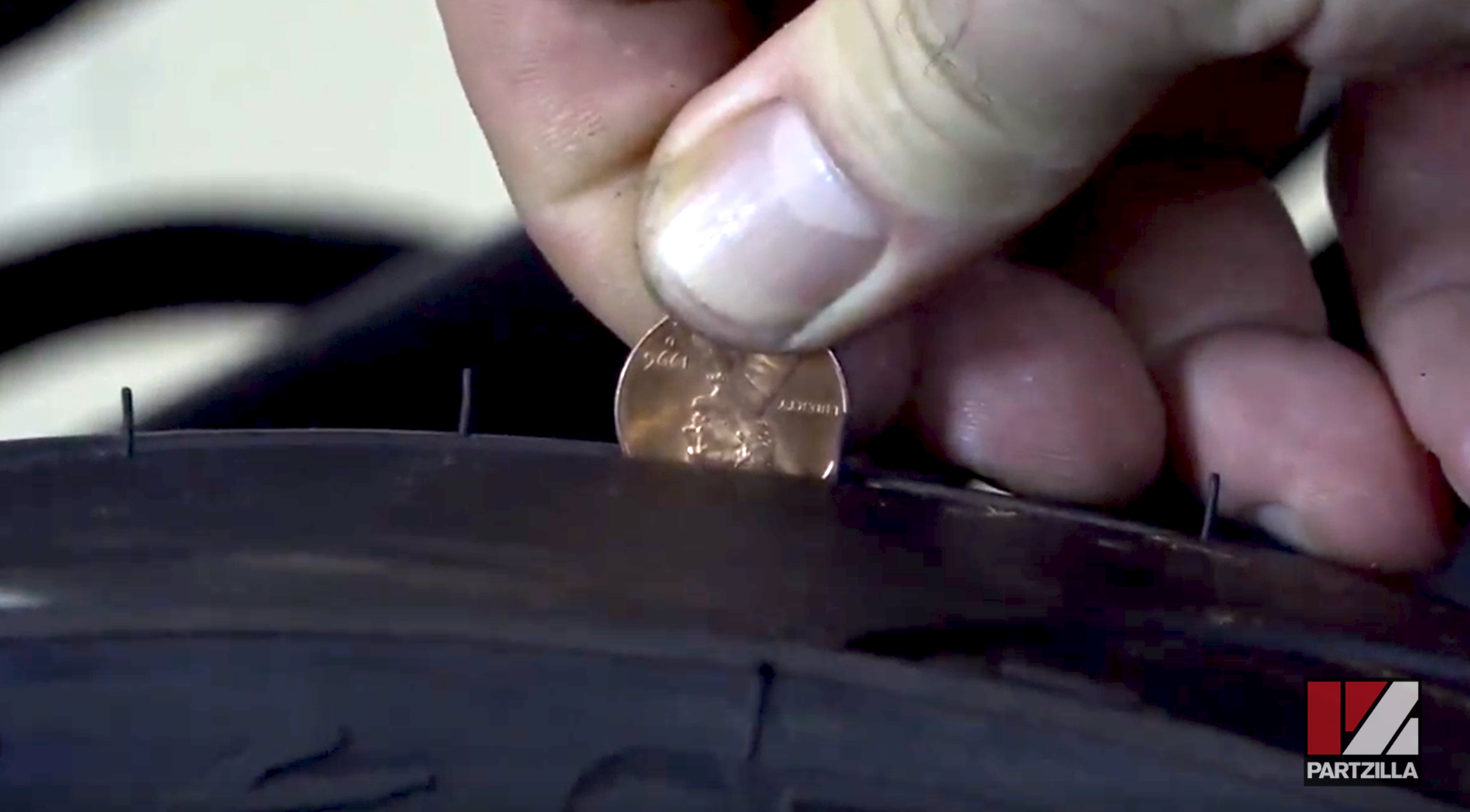
Motorcycle Tire Wear
Tires on your machine can wear out in a number of ways. When kept on the machine too long, the tire will continue to wear all the way down to the cords, creating a dangerous situation.
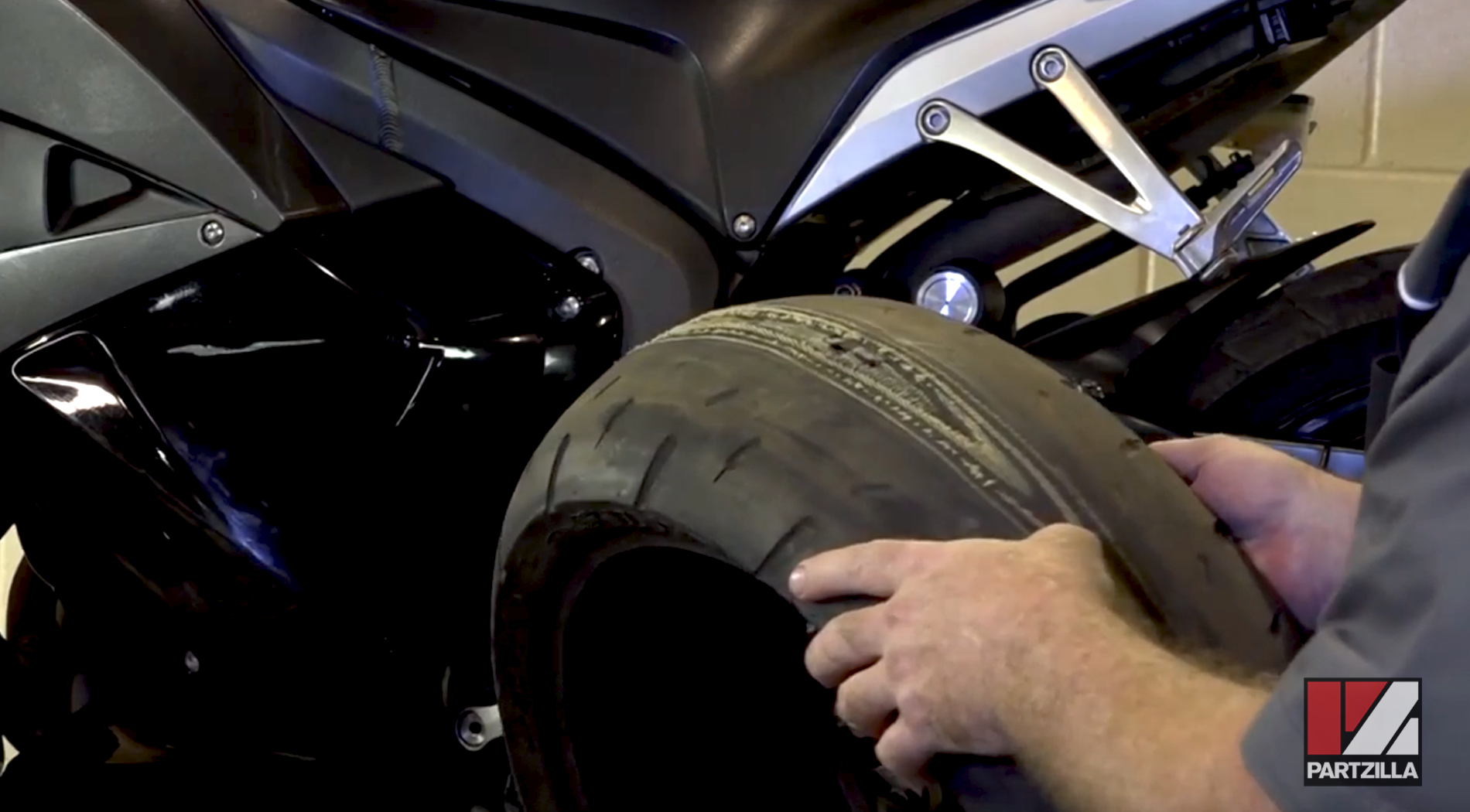
Other tires might exhibit an irregular wear pattern. This can be the result of many mechanical factors including a misaligned wheel, which can create an uncomfortable ride as a cupped feature develops on the tire tread.
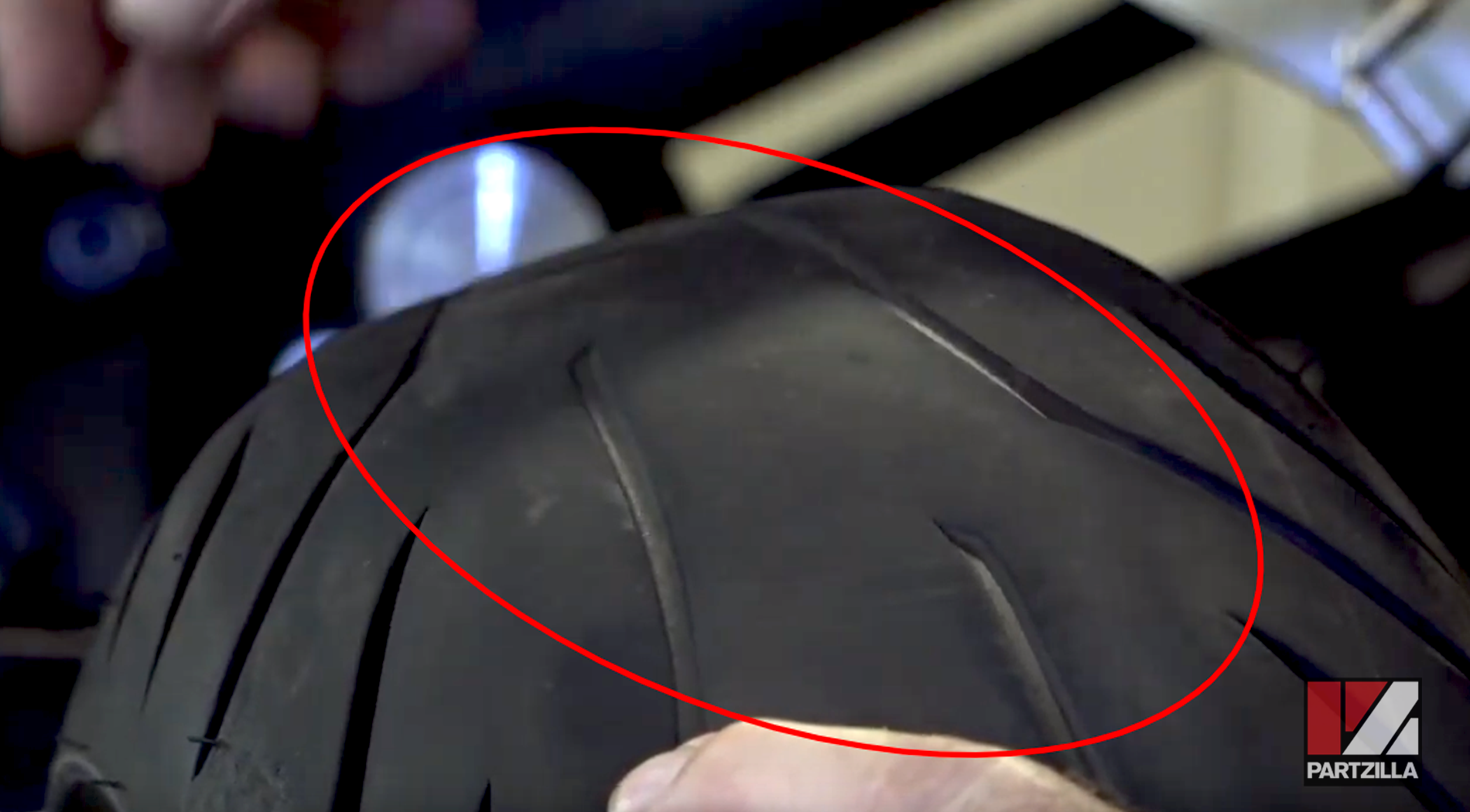
Motorcycle Tire Dry Rot
An overlooked issue when evaluating motorcycle tires is dry rot. Over time, a tire becomes less supple and can start to crack. It can make the tire more susceptible to blowouts or coming apart at the bead where the tire is tucked under the wheel.
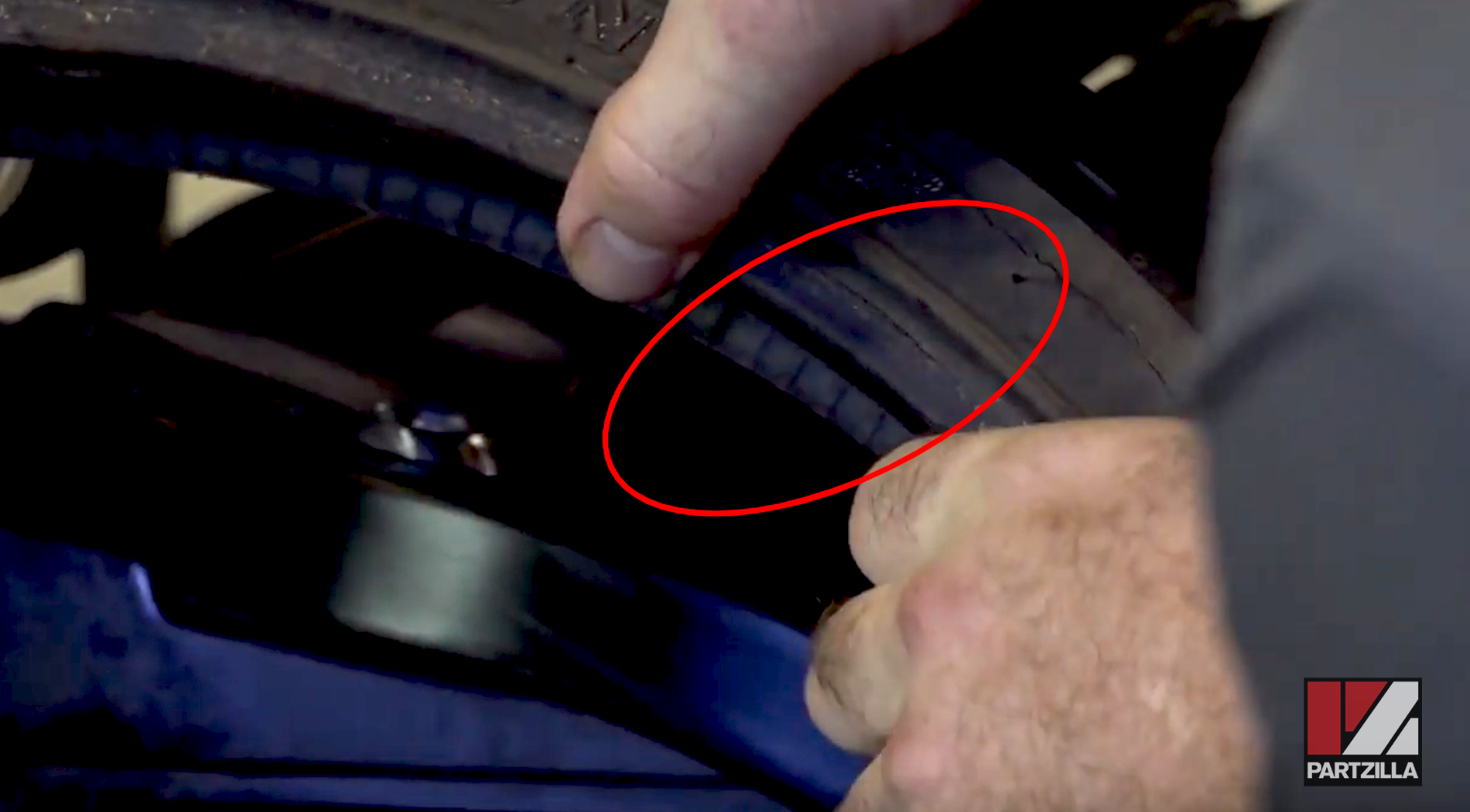
Fortunately, every manufacturer stamps a manufacture date on their tires, which can serve as an expiration date of sorts to give you guidance on when a tire's time is coming up. It's generally a four-number code:
- First two numbers: The week of the year
- Last two numbers: The year itself
For example, "4907" indicates the tire was manufactured in the 49th week of 2007.
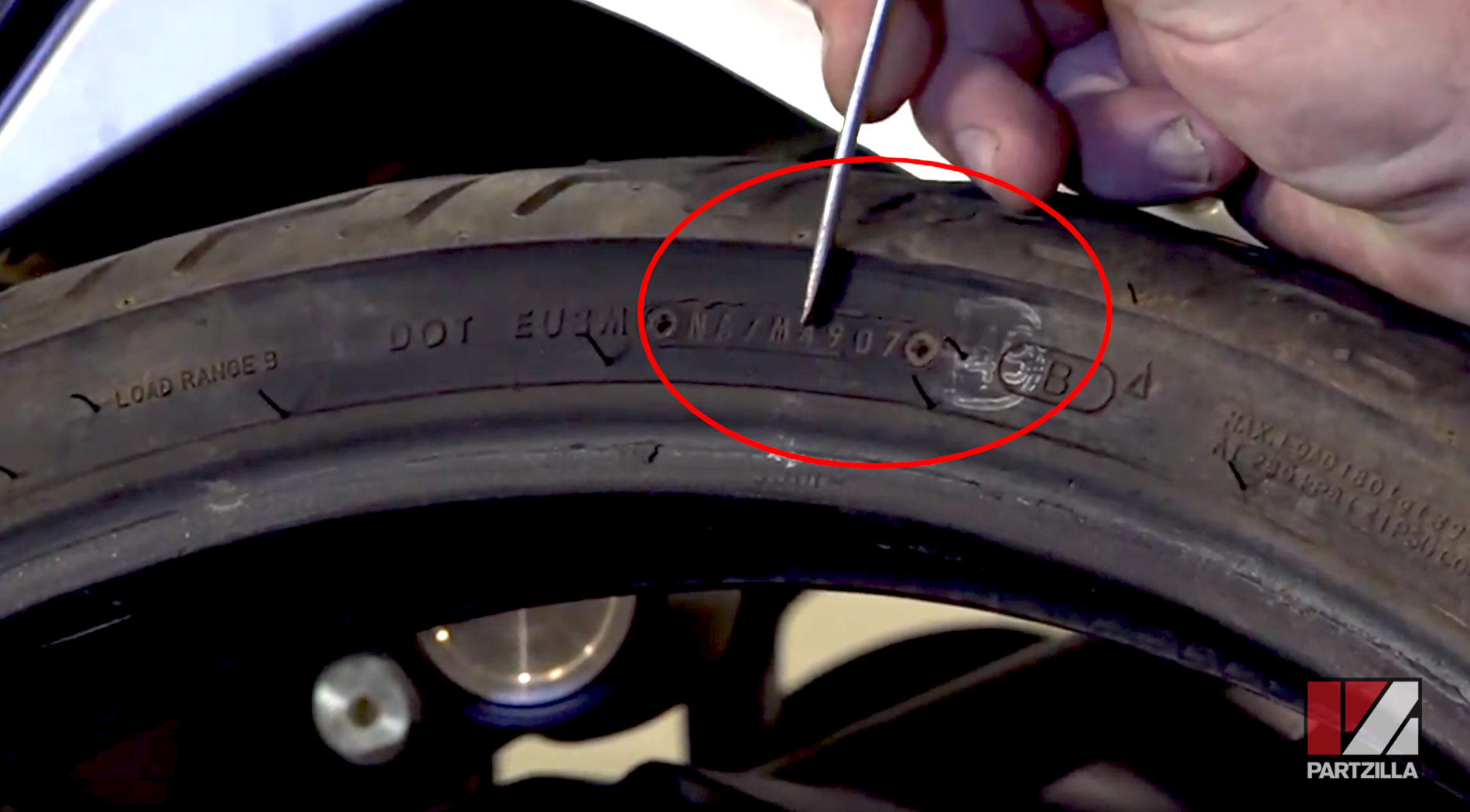
How Old is Too Old?
The industry standard for the lifespan of a motorcycle tire is six years, but five years is a better time to retire a tire. Higher performance tires with softer rubber compounds can degrade even quicker than that, so make sure you keep up with the maintenance, and check the tread depth on your tires often to keep your machine riding and handling safely.
Are the wear indicators telling you it’s time to change the tires on you motorcycle? Watch the videos above to see how to change the front tire on a Honda motorcycle and how to change the rear tire on a Honda motorcycle.
